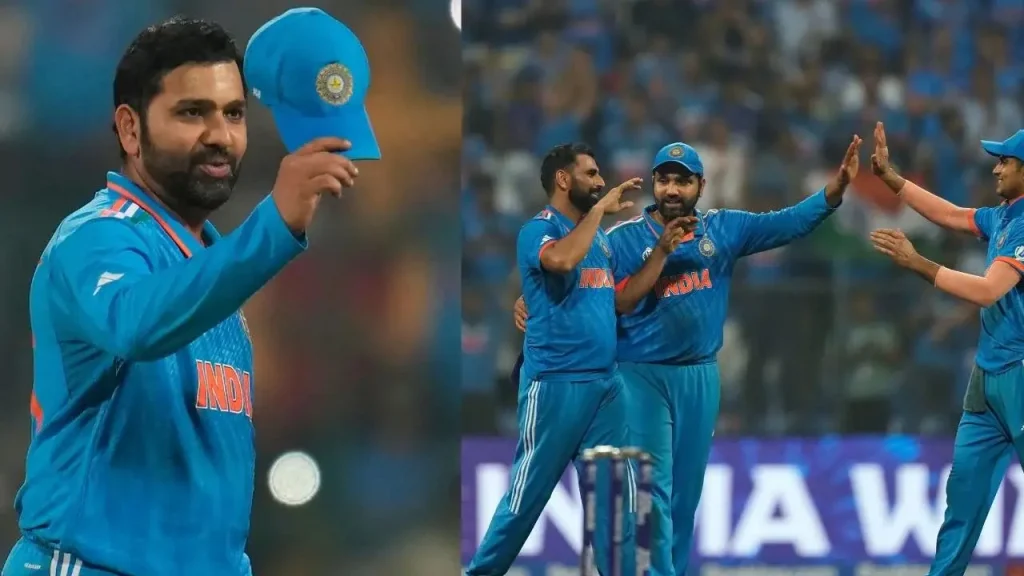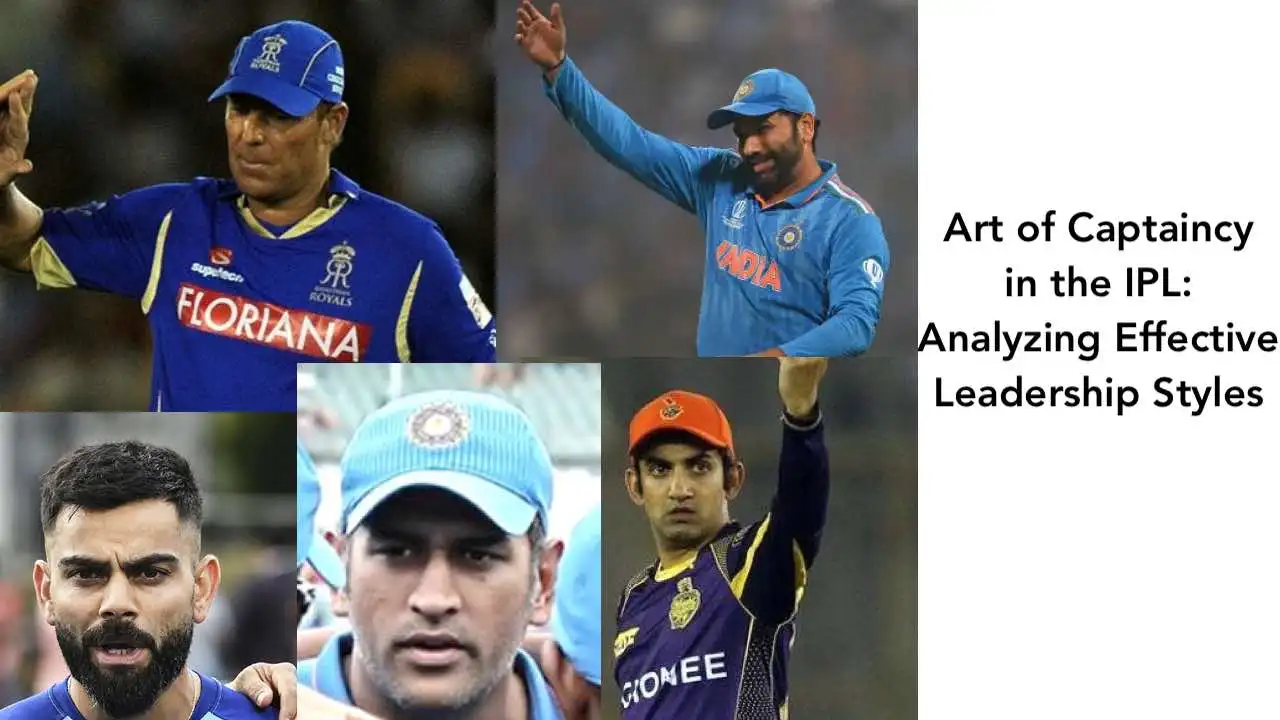In the high-stakes world of the Indian Premier League (IPL), where fortunes can shift in a matter of moments, the role of captaincy is paramount. Leading a team of diverse personalities and talents, each with their own strengths and weaknesses, requires a delicate balance of strategy, man-management, and decision-making prowess. Over the years, the IPL has witnessed a myriad of leadership styles, each with its unique nuances and approaches. From the calm and composed to the fiery and passionate, these captains have left an indelible mark on the tournament, shaping the destinies of their respective teams.
The Calm and Composed: MS Dhoni’s Pragmatic Leadership
Few captains in the IPL have embodied the art of calm and composed leadership quite like MS Dhoni. The former Indian captain’s ability to remain unflappable under pressure has been a hallmark of his captaincy, allowing him to make critical decisions with a clear and level head. Dhoni’s leadership style is rooted in pragmatism, favoring a measured approach over impulsive decision-making.

One of the defining traits of Dhoni’s captaincy is his unwavering trust in his players. He is known for empowering his team members, allowing them to play to their strengths and trusting their instincts on the field. This approach not only fosters a sense of confidence within the team but also promotes a culture of accountability and responsibility.
Furthermore, Dhoni’s ability to read the game and make timely tactical adjustments has been a key factor in his success as a captain. His willingness to take calculated risks, coupled with his astute understanding of match situations, has often turned the tide in his team’s favor.
The Aggressive and Passionate: Rohit Sharma’s Fiery Leadership
On the other end of the spectrum lies Rohit Sharma’s fiery and passionate leadership style. The Mumbai Indians captain is known for his aggressive approach, both on and off the field. Rohit’s leadership is characterized by a relentless pursuit of excellence, coupled with an unwavering belief in his team’s abilities.

One of the defining traits of Rohit’s captaincy is his ability to inspire and motivate his players. His fiery and passionate demeanor on the field is often contagious, igniting a sense of determination and hunger within the team. This approach has proven to be particularly effective in high-pressure situations, where Rohit’s leadership has galvanized his team to overcome seemingly insurmountable odds.
Moreover, Rohit’s tactical acumen and willingness to embrace risk have been instrumental in his success as a captain. His ability to identify and capitalize on opposition weaknesses, combined with his bold decision-making, has often caught opponents off-guard, giving his team a decisive edge.
The Analytical and Strategic: Virat Kohli’s Meticulous Approach
Virat Kohli’s captaincy style is a study in meticulous planning and strategic execution. The former Royal Challengers Bangalore skipper is known for his analytical approach to the game, leaving no stone unturned in his pursuit of success.

One of the key pillars of Kohli’s leadership is his unwavering commitment to preparation and attention to detail. He is known for meticulously analyzing opposition strengths and weaknesses, devising intricate game plans to exploit them. This level of preparation not only instills confidence within his team but also ensures they are well-equipped to adapt to any situation on the field.
Furthermore, Kohli’s ability to lead by example has been a defining characteristic of his captaincy. His relentless drive and unwavering work ethic have inspired his teammates to push their limits, fostering a culture of excellence and accountability within the team.
The Man-Manager: Gautam Gambhir’s Empathetic Leadership
Gautam Gambhir’s approach to captaincy is rooted in his ability to connect with his players on a personal level. The former Kolkata Knight Riders skipper is renowned for his empathetic and understanding leadership style, which has enabled him to forge strong bonds with his team members.

One of the defining traits of Gambhir’s captaincy is his willingness to listen and understand the needs and concerns of his players. He is known for fostering an open and supportive environment, where players feel comfortable expressing themselves and seeking guidance.
Moreover, Gambhir’s ability to tailor his approach to individual players has been a key factor in his success as a captain. He recognizes that each player is unique, with their own strengths, weaknesses, and motivations, and adapts his leadership style accordingly.
The Collaborative and Inclusive: Shane Warne’s Participatory Leadership
Shane Warne’s captaincy style is a testament to the power of collaboration and inclusivity. The legendary Australian spinner, who led the Rajasthan Royals to an unlikely IPL triumph in the inaugural season, embraced a participatory approach to leadership, involving his team members in decision-making processes.

One of the defining traits of Warne’s captaincy was his ability to foster an environment of open communication and trust. He encouraged his players to voice their opinions and share their insights, creating a sense of ownership and collective responsibility within the team.
Furthermore, Warne’s willingness to delegate responsibilities and empower his team members played a crucial role in his success as a captain. He recognized that true leadership is not about individual dominance but rather about harnessing the collective strengths and talents of the team.
The Impact of Leadership Styles on Team Dynamics
While each of these captains has their unique leadership style, their approaches have had a profound impact on the dynamics and performance of their respective teams. A captain’s leadership style can shape team culture, foster a sense of unity and camaraderie, and ultimately influence the team’s ability to perform under pressure.
For instance, Dhoni’s calm and composed leadership has been instrumental in fostering a sense of stability and resilience within his teams. His ability to remain grounded in the face of adversity has instilled a sense of confidence and composure in his players, allowing them to perform at their best even in high-pressure situations.
In contrast, Rohit Sharma‘s fiery and passionate approach has been a driving force behind his team’s never-say-die attitude. His unwavering belief in his players and his ability to inspire them to push beyond their limits have often been the catalyst for remarkable comebacks and memorable victories.
Kohli’s meticulous planning and strategic execution have been instrumental in creating a disciplined and well-oiled team dynamic. His attention to detail and unwavering commitment to preparation have ensured that his players are always well-equipped to take on any challenge, fostering a sense of confidence and self-belief within the team.
Gambhir’s empathetic leadership has been a key factor in creating a supportive and nurturing environment within his teams. His ability to connect with his players on a personal level has fostered a sense of trust and camaraderie, enabling them to perform at their best without the burden of external pressures.
Warne’s collaborative and inclusive approach has been instrumental in fostering a sense of ownership and collective responsibility within his teams. By involving his players in decision-making processes and empowering them to take ownership of their roles, he has created a dynamic where every member of the team feels valued and invested in the team’s success.
The Evolution of Leadership Styles
As the IPL continues to evolve, the art of captaincy is likely to undergo a transformation as well. With the influx of new talents, changing team dynamics, and the ever-evolving nature of the game, captains will be compelled to adapt and refine their leadership styles to stay ahead of the curve.
One potential trend that may emerge is the rise of data-driven leadership. With the increasing availability of advanced analytics and performance metrics, captains may leverage these insights to make more informed decisions and devise more effective strategies. This approach could potentially blend the analytical and strategic aspects of captaincy with a more data-driven decision-making process.
Additionally, the growing emphasis on player well-being and mental health may shape the future of captaincy in the IPL. Captains may need to adopt a more holistic approach to leadership, considering not just on-field performance but also the overall well-being and mental state of their players. This could lead to the emergence of a more empathetic and supportive leadership style, focused on fostering a positive and nurturing team environment.
Furthermore, the increasing diversity of teams in the IPL, with players from various cultural backgrounds and cricketing traditions, may necessitate a more inclusive and adaptable leadership approach. Captains may need to embrace a more culturally-sensitive leadership style, recognizing and respecting the unique perspectives and backgrounds of their players, while fostering a sense of unity and shared purpose within the team.
The Enduring Legacy of Effective Captaincy
Ultimately, the art of captaincy in the IPL is a testament to the enduring importance of effective leadership in any endeavor. These captains have not only shaped the destinies of their respective teams but have also left an indelible mark on the tournament itself, inspiring generations of aspiring cricketers and leaders alike.
Their leadership styles, whether calm and composed, fiery and passionate, analytical and strategic, empathetic, or collaborative, have become blueprints for success, offering valuable lessons on team management, decision-making, and the art of inspiring excellence.
As the IPL continues to captivate audiences worldwide, the legacy of these captains will endure, serving as a reminder of the profound impact that effective leadership can have on the success of any team or organization. Their stories of triumph, resilience, and unwavering commitment will continue to inspire future generations, fostering a deeper appreciation for the art of captaincy and the enduring values of leadership.
Through their actions, these captains have not only etched their names in the annals of cricketing history but have also contributed to the rich tapestry of leadership principles that transcend the boundaries of sport. Their ability to navigate the complexities of team dynamics, make critical decisions under pressure, and inspire their players to reach new heights of excellence will forever be celebrated as a testament to the enduring power of effective leadership.

